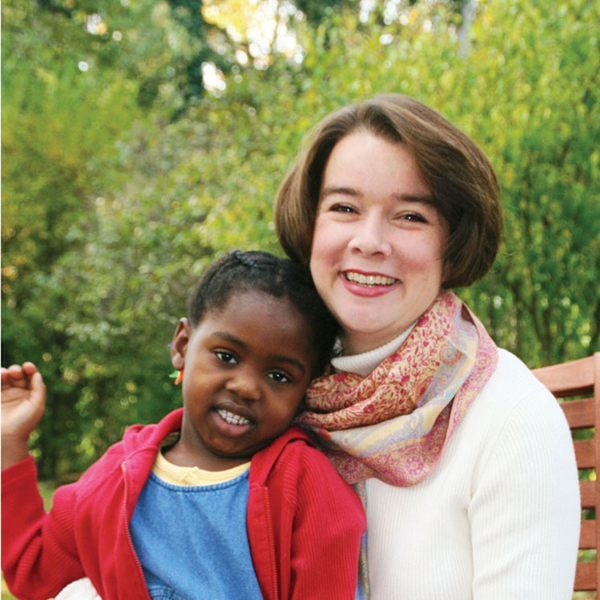As I drove to the science museum with Gabrielle, my five-year-old daughter, I could sense her anxiety escalating. We’d be separated for a few hours while she attended an interactive children’s program. Gabrielle enjoys these programs, but she is uneasy without me at her side. She worried aloud about what the other kids would be like, whether the teachers would be “boys or girls,” and where I would be while she was there.
I reminded her that she had fun at the last two programs, and that, as always, I would return to pick her up. Then Gabrielle asked, “Mama, when my birth mother went away from me, did I always want her to come back, too?” Gulp. I stammered, “Yes, honey, you probably did.”
“So, why didn’t she come back?”
Boy, that’s a tough one.
Moment to Moment
My resilient daughter rebounded from an extremely difficult start in life, which included multiple illnesses, the dire poverty of her birth family, and several months spent in an orphanage. When I adopted her, at two years old, she weighed only 15 pounds.
Gabrielle has made great strides in the years we’ve been together, but there is a part of her that knows, viscerally, that she was abandoned and is terrified of that happening again. One Mommy left her (albeit for loving reasons), so who is to say I won’t leave her, as well?
When I became a parent, I knew that such questions would be posed. I prepared by reading as much as I could and by listening to many wise adoption experts. I follow their advice and try to keep my answers honest and simple. I don’t always do as well as I would like, but I keep trying. Still, I can’t predict when we will have these conversations.
Children rarely make appointments to discuss questions about adoption, giving you time to think of the perfect answers and explanations. In fact, I’m often in a harried state when such questions come, and I must make an effort to pause to give the moment the focus and sensitivity it requires – whether we’re stuck in traffic on the way to school, ordering dinner at a restaurant, or in the middle of the produce section at the grocery store. And, as you must always be ready to talk, you must also be ready to move on.
The other day, while we were happily playing with Barbies, Gabrielle asked, “If people in Haiti are poor, why didn’t my birth mommy just come to live here?” I tried to explain that there are different rules in different countries. We talked about using our passports when we went to Canada, and then I showed her her Haitian passport. With this, Barbie-playing resumed.
Going With the Flow
As we neared the museum, the subject turned to poverty. We discussed how, in some places in the world, all children don’t get to go to school and grow up healthy. Gabrielle said, “That isn’t nice, Mama.” I agreed with her. She brought up the families we help by delivering food. I added that all of us can help each other, and praised her for always sharing with her cousins.
Gabrielle then asked why there are so many poor people in Haiti and why some people have guns. I had to tell her that I don’t know, but I hope it will be different some day. I sensed the gross inadequacy of my explanation, but she accepted it and asked to change the music we were listening to. As she searched for her favorite CD, I realized that this serious talk had taken only a few minutes, and my daughter had moved on to other thoughts. But I rehashed my part in it for quite a while.
As we walked into the museum, we talked about the marine animals they had on display and how the day’s program would involve making lots of gooey stuff with her hands. We found the room, where we met two “girl” teachers and several friendly children. I hugged Gabrielle goodbye and told her I would be back when the class ended. She chewed on her sweater string and said, “OK, Mom.” She paused, and I saw another question coming. “Can you bring me a snack?”
“Sure,” I said. Then I happily walked down the street to the bakery.



